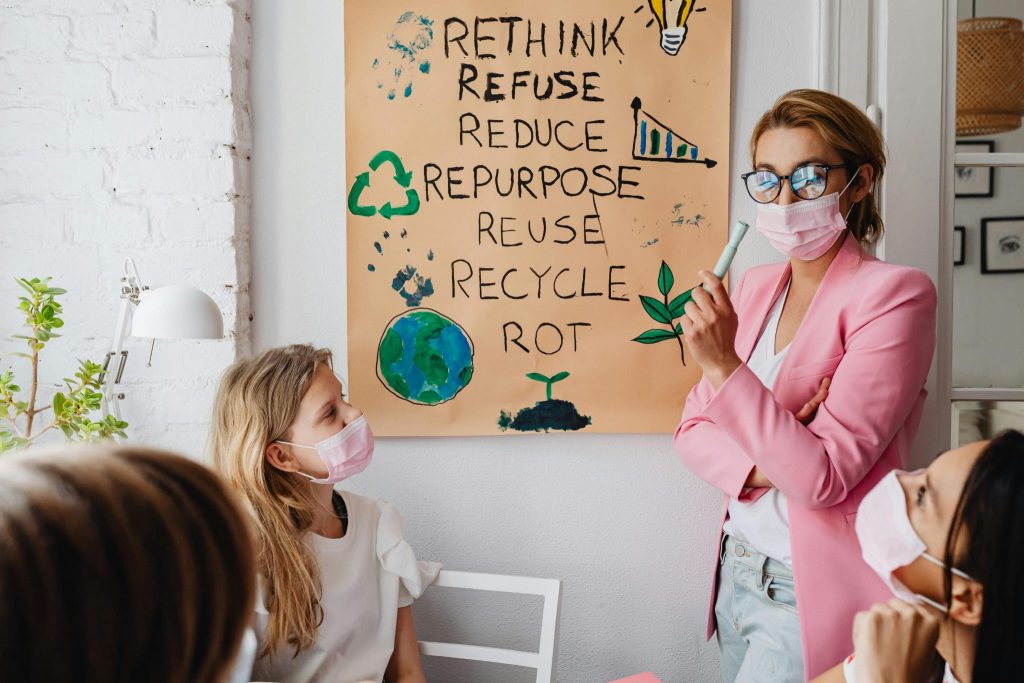A Gender Sensitive Perspective on the European Green Deal
21 December 2023 /
Elea Cogoluenhes 4 min

The European Union is perceived as an ambitious and committed actor towards a net-zero emission Europe since the launch of the Green Deal in 2019. However, gender equality should go hand in hand with sustainable policymaking, but the link is still weak within the European Green Deal.
The European Union is typically perceived as a precursor because of its ambitious Green Deal policy. A report published on Monday 18th December 2023 by the European Environmental Agency (EEA) on the feasibility of the 8th EAP objectives reveals that most of the EU’s objectives towards the green transition are “unlikely but uncertain” or “very unlikely” to be achieved by 2030 as was initially planned. While the EU might have a strong normative commitment to net-zero emissions by 2050, the compatibility of such plans with the social dimension of the climate transition remains largely marginal. This is also observable in the context of the COP28. However, we should remind ourselves of the indivisibility of social, economic and environmental pillars in order to achieve sustainable development. As such, bringing the focus on vulnerable communities and especially on the gendered aspect of this social dimension is key to a just and fair European green transition.
Gender Inequalities in the Climate Transition
Within the context of the climate crisis, vulnerabilities and inequalities are exacerbated. This is a well-established fact and the inequalities faced by gender minorities encompass exclusion from decision-making, education, health risks, energy and transport poverty. Women continue to be marginalised from the decision-making process of the green transition. For example, within the context of the COP28, women continued to be largely under-represented in key decision-making spaces, and problematics around a gender-sensitive climate transition remained on the margins of the main agreement negotiations. On the other side, within climate activism, women, especially in the Global South, find themselves at the forefront of social movements like Wangari Maathai, the 2004 Nobel Peace Prize winner who founded the Green Belt Movement. Indigenous women find themselves at the intersection of environmental, social and gendered challenges, and this should be reflected in their presence at the table for a gender equal green transition.
As reported by the European Institute for Gender Equality (EIGE) in 2023, women are also at increased risk of energy and transport poverty within the Green Deal context. Measures aimed at cutting down the domestic consumption of fossil fuels and individuals’ carbon footprint affect vulnerable households disproportionately. Within this category, older women, women living in social housing and single parents, of which 85% are women, are affected by the rising prices of gas for example. As such, the Green Deal’s ambitions of providing an economically viable and socially fair green transition are much harder to reconcile when taking this gender-sensitive approach. Green transition measures can clash with gender equality goals, not only in the sector of decision-making but within the different facets of everyday life, such as energy, transport, finance, health and mobility, which is why a holistic approach is needed.
European Gender Sensitive Framework
The Green Deal is an ambitious package, however, despite the strong commitment to social fairness, the implementation of gender equality into Green Deal policy instruments is superficial at best, forgotten at most. Policymaking needs to be more gender responsive and inclusive to respond to exacerbating gendered inequalities. Including gender minorities in the decision-making process could help produce a more efficient and holistic framework for a socially just green transition. In the domain of energy and transport, data from the EIGE’s report reveals that women tend to have more environmentally-friendly behaviours than men. The labour market is also affected by the green transition, and professions dominated by women should be included into the green job label because they constitute low-carbon professions. As such, they should be central to the European green transition. Finally, in the domain of data-collection, the lack of comprehensive data with a gender breakdown limits the possibilities for effective and fair policymaking. The Green Deal’s social dimension remains underdeveloped, and much potential lies dormant when we forget to be gender sensitive in our commitment to the climate transition.
As such, a gender sensitive approach to the green transition cannot be avoided. Acknowledging the intersectional aspects of intercrossing vulnerabilities exacerbated in contexts of crises such as the climate emergency is key. The link remains weak between a gender sensitive approach and the commitment to the green transition at the European level, and it is key to address it.
Elea Cogoluenhes is a master student at the Institute of European Studies.
(Edited by Luka Krauss)
